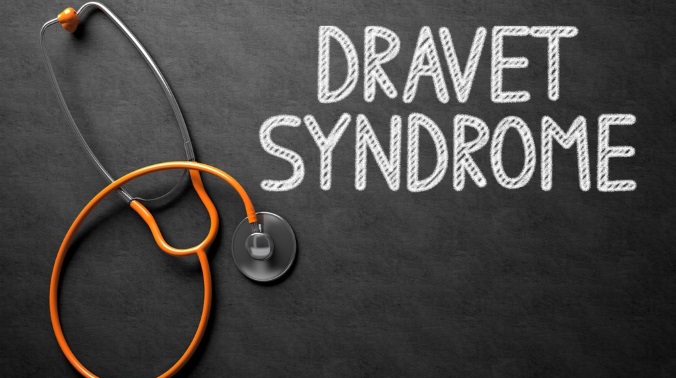Studies about the efficacy of marijuana on epilepsy date as far back as 1949. Although half of the participants in a 1978 study conducted by Mechoulam and Carlini1 became seizure-free after three months of using cannabidiol (CBD), a substance found in marijuana, the small number of participants made scientists overlook the success. More studies have been conducted since, including a new study with more participants which has confirmed that at least one form of epilepsy, Dravet Syndrome, can be successfully treated with medical marijuana.
What is Dravet Syndrome?
Dravet Syndrome Spectrum2 refers to a rare, genetic form of epilepsy that is believed to occur due to a mutation in the SCN1A gene. This severe seizure disorder has an onset during the first year of life and can cause a range of uncontrollable and prolonged seizures. The seizures do not respond to most conventional epilepsy treatments, so medical professionals advocate appropriate and aggressive seizure management techniques to improve outcomes. Most children who suffer from Dravet Syndrome are not expected to live past their 20th birthday.
Medical Marijuana as a Treatment for Epilepsy
Marijuana has been used to treat seizures throughout history. As early as 1800 B.C., cannabis was used to treat seizures in Sumeria. Victorian neurologists also used Indian Hemp, which has high levels of cannabidiol, to treat epilepsy.
More recently, researchers David Gloss and Barbara Vickrey3 reviewed scientific literature for studies on treating epilepsy with cannabis or cannabis derivatives. They found 20 studies conducted from 1949-2008 in which participants saw success with CBD for the length of the trials. Gloss and Vickrey determined that more studies would need to be done, not because of a lack of evidence that CBD worked, but because they were looking for studies that recorded results for 12 months or longer.
CBD Reduces Seizures Dravet Syndrome Patients
Devinsky4 and 30 other collaborators have now tested and confirmed that CBD reduces seizures in children and young adults with Dravet Syndrome. This landmark study was conducted over a 14-week period after a 4-week baseline period, for a total of 18 weeks.
The study was a double-blind study, which means that neither the participant nor the person administering the medication knew if the participant was in the placebo or CBD group.
Participants included 120 children and young adults with Dravet Syndrome between the ages of two and 18 years old. Each was randomly assigned to either a placebo solution group or a group which received an oral solution of CBD oil. The CBD solution was 20mg of CBD oil per kilogram of body weight. Participants also received their standard antiepileptic treatments.
The goal of the study was to determine if a change would occur in convulsive-seizure frequency by the end of the 14-week trial period. Caregivers were also asked a series of questions about the participant’s overall condition at the end of the study.
Results of the Study
For the group that received the CBD solution, convulsive seizures decreased on average from 12.4 to 5.9 per month. The placebo group saw an average change of only 0.8 per month, dropping from 14.9 to 14.1 convulsive seizures per month.
For all participants, 43 percent of the CBD group experienced 50% fewer convulsive seizures, whereas only 27 percent of the placebo group experienced 50 percent fewer convulsive seizures. For all seizure types, the CBD group experienced fewer total seizures, but the placebo group did not. No person in the placebo group became completely seizure-free, but 5 percent of the participants in the CBD group were seizure-free by the end of the study.
Additionally, 62 percent of caregivers in the CBD group reported improvement in at least one of seven categories concerning the participants’ overall conditions, and 34 percent of caregivers in the placebo group noted at least one area of improvement.
Although 93.4 percent of participants in the CBD group experienced side effects, they were reported as mild to moderate.
This study confirmed results from an earlier study also conducted by Devinsky5. His December 2015 investigation found the same reductions in seizures, but the structure was different. In the previous study, both participants and researchers knew they were receiving CBD oil, which might have created biased results. However, the double-blind study confirms the results without bias.
Conclusions from the Study
This landmark study opens doors to longer trials and more research. Although cannabidiol may not be a panacea for epilepsy or Dravet Syndrome, the reduction in seizures it enabled provides a ray of hope for families who have been searching for additional treatment options. Cannabis and cannabis-derived medications clearly hold profound promise as a treatment for seizure disorders.
References:
1 David Gloss and Barbara Vickrey, 2012.
Cochrane Database of Systemic Reviews, Cannabinoids for epilepsy.
http://www.medicinalgenomics.com/wp-content/uploads/2013/11/Cochrane-Review-CBD-Epilepsy.pdf
2 WebMD, Dravet Syndrome Spectrum.
http://www.webmd.com/epilepsy/dravet-syndrome
3 David Gloss and Barbara Vickrey, 2012.
Cochrane Database of Systemic Reviews, Cannabinoids for epilepsy.
http://www.medicinalgenomics.com/wp-content/uploads/2013/11/Cochrane-Review-CBD-Epilepsy.pdf
4 Devinsky, et. al., May 25, 2017.
New England Journal of Medicine, Trial of Cannabidiol for Drug-Resistant Seizures in the Dravet Syndrome.
https://www.ncbi.nlm.nih.gov/pubmed/28538134
5 NYU Langone Health, Cannabis Derivative Cannabidiol Reduces Seizures in Severe Epilepsy Disorder.
http://nyulangone.org/press-releases/cannabis-derivative-cannabidiol-reduces-seizures-in-severe-epilepsy-disorder

